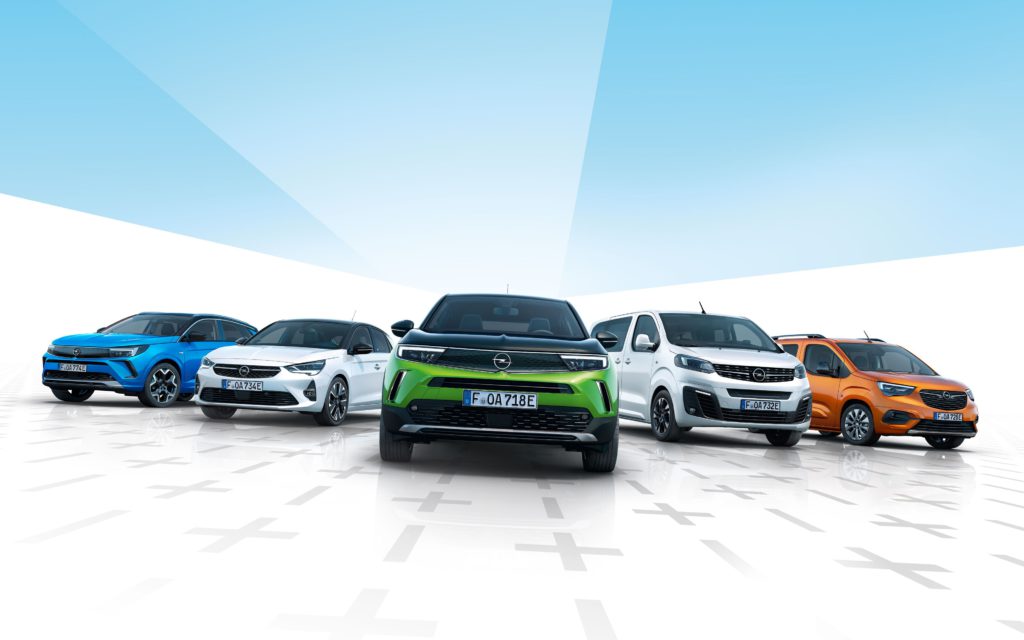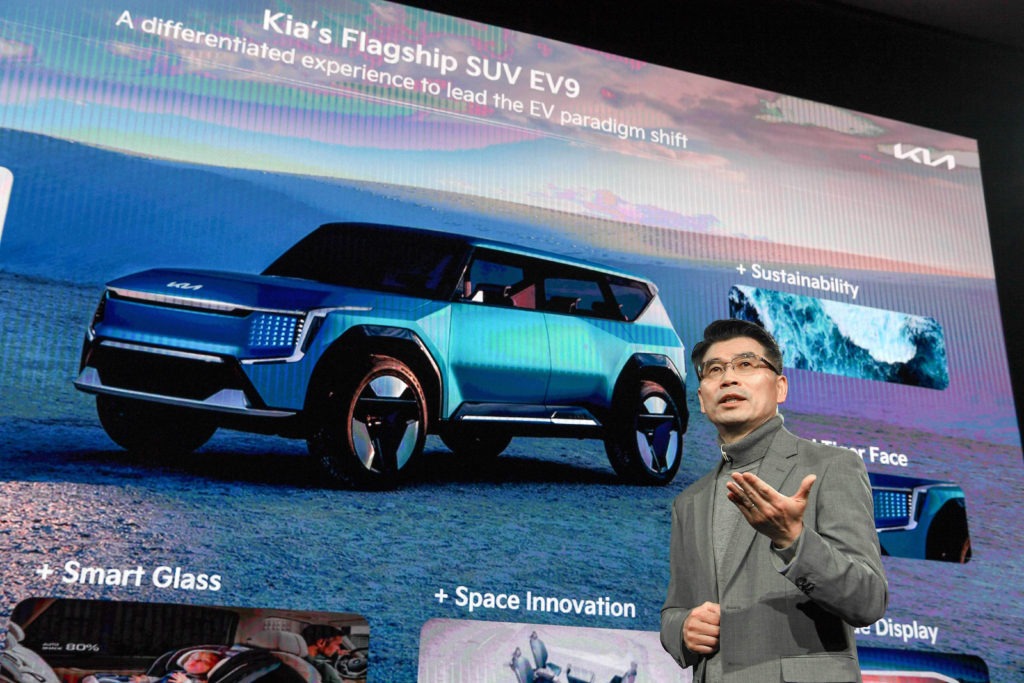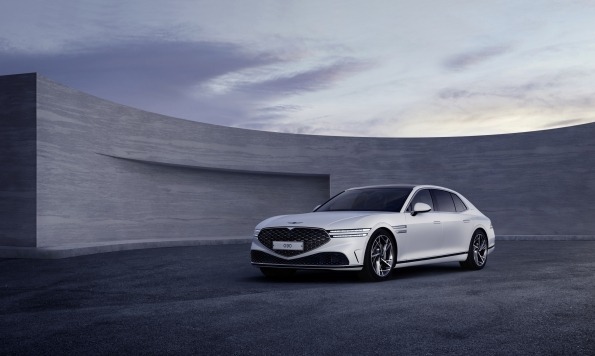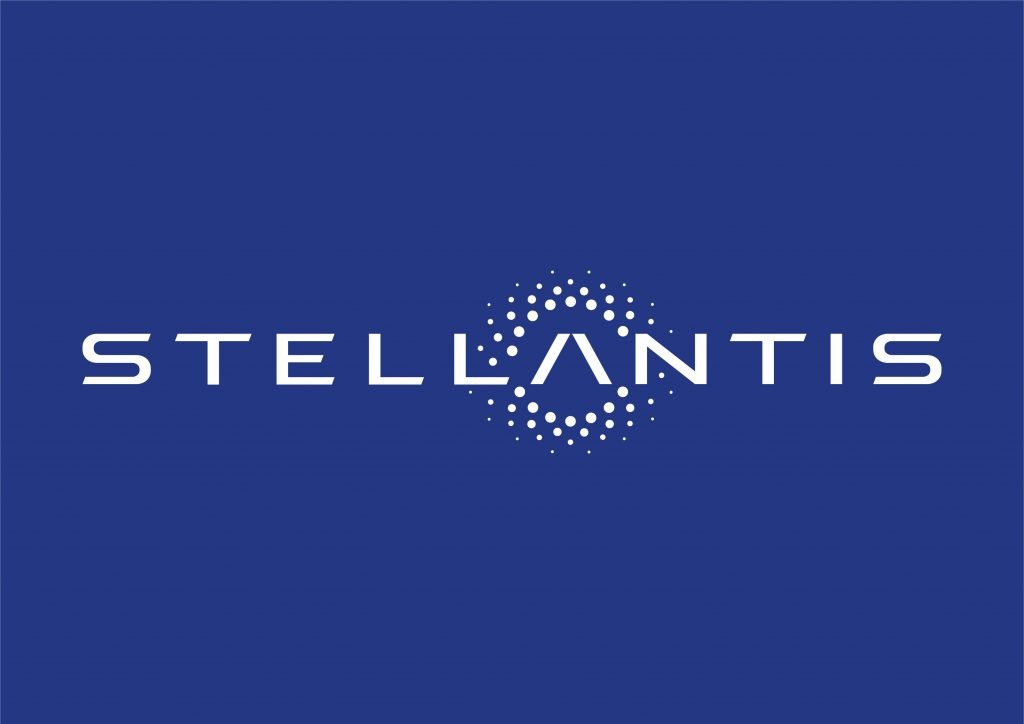Opel to only sell electric cars and vans from 2028
09 March 2022

Opel is to become a purely electric car brand by 2028, as part of parent group Stellantis’ drive towards sustainable mobility.
The carmaker will switch its entire line-up to battery-electric vehicles (BEVs), with the 12 current variants to be joined by a new model based on the Opel Manta. The successors of the Opel Crossland and Insignia will also be electric. This means all cars, together with the brand’s light-commercial vehicles (LCVs), will be battery-powered.
To meet customer needs, Opel will ensure that its models offer a driving range of between 500km and 800km, with a fast-charging capability of 32km per minute.
‘Opel is on a consistent path to going electric – and in record time,’ said Opel CEO Uwe Hochgeschurtz. ‘We are thus making an important contribution to reducing CO2. We will not stop with the conversion of our product range. Together with our partners, we will be manufacturing our own high-performance batteries in Kaiserslautern as early as 2025. In addition, a resource-friendly new campus is being built at our headquarters in Rüsselsheim.’
New gigafactory will be essential
In 2021, Stellantis and Opel joined with Total/Saft and Mercedes-Benz to form the Automotive Cells Company (ACC). This automotive partnership is looking to create a leading player in the field of developing and producing high-performance batteries for the automotive industry.
In addition, ACC announced it would increase industrial capacity for its automotive gigafactory site in Kaiserslautern to up to 32GWh. Following Opel’s announcement of plans to go electric-only, this expansion must now be seen as essential. As the automotive market looks towards an electrified future, the supply-chain for batteries will certainly come under the spotlight.
With the semiconductor shortage still hurting vehicle supplies, and the Ukraine conflict highlighting the fragility of other supply lines, Europe’s automotive industry cannot afford to have a disruption in battery provision. Therefore, the development of gigafactories on the continent is an increasing necessity. The shortening of these supply chains will also improve the sustainability credentials of electric vehicles (EVs), as they will rely less on shipping and long haulage routes.
New Opel Manta planned
Opel is also planning to reinvent its classic Manta as a BEV. The 1970s coupe was reimagined last year as a concept, the Manta GSe ElektroMOD. The carmaker has now confirmed the vehicle will be launched in 2025.
‘The new Opel Manta will be a highly emotional car once again. With electric power that ensures first-class acceleration on tap. Our Manta will once again stand for pure driving pleasure. We will build a fascinating, astoundingly spacious new interpretation,’ said Hochgeschurtz.
Hydrogen included
Alongside its Stellantis stablemates, Opel has also launched a hydrogen fuel-cell (FCEV) LCV, the Vivaro-E Hydrogen. The first vans came off the company’s Rüsselsheim production line at the end of last year, destined for the fleet of the German manufacturer of domestic appliances, Miele.
‘The hydrogen van is the ideal solution for driving long distances with zero emissions as well as for transporting larger loads without losing time while charging the batteries,’ stated Opel head of development, Marcus Lott.
The carmaker has not stated whether the technology will filter through into its passenger-car line-up yet. It may look to continue developing the technology in the LCV market before making such a decision. Instead, it will look to battery technology to power its vehicle fleet for the time being.



